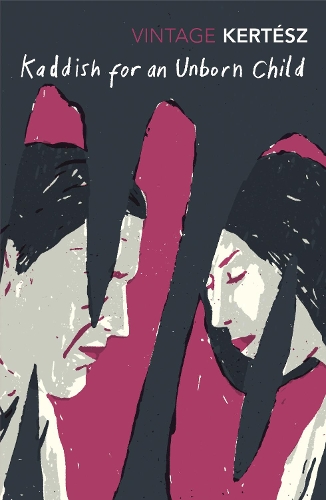
Kaddish For An Unborn Child
(Paperback)
Publishing Details
Kaddish For An Unborn Child
By (Author) Imre Kertesz
Translated by Tim Wilkinson
Vintage Publishing
Vintage Classics
15th September 2017
7th September 2017
United Kingdom
Classifications
General
Fiction
Family life fiction
Historical fiction
Narrative theme: Death, grief, loss
Fiction in translation
894.511334
Physical Properties
Paperback
144
Width 129mm, Height 198mm, Spine 8mm
106g
Description
A moving, mesmerising novel about the dilemma involved in bringing a child into a world in which the evil to create Auschwitz exists. 'A fine and powerful piece of work. Dark, at times cryptic, and hugely energetic' Irish Times "No!" is the first word of this haunting novel. It is how a middle-aged Hungarian-Jewish writer answers an acquaintance who asks him if he has a child, and it is how he answered his wife years earlier when she told him that she wanted one. The loss, longing and regret that haunt the years between these two 'No!'s give rise to one of the most eloquent meditations ever written on the Holocaust. As Kertesz's narrator addresses the child he couldn't bear to bring into the world, he takes readers on a mesmerising, lyrical journey through his life, from his childhood to Auschwitz to his failed marriage.
Reviews
Condenses a lifetime into a story told in a single night...exhilarating for [its] creative energy * World Literature *
Stunning... resembles such other memorably declamatory fictions as Camus' The Fall and Dostoyevsky's Notes from Underground * Kirkus Reviews *
While the average reader cannot pretend truly to understand the reality of those who suffered in concentration camps, Kertsz draws us one step closer * Observer *
For taking us somewhere no other writer has, Kertsz fully deserved his Nobel Prize * Independent *
Tim Wilkinson is a seriously good translator...I may have given the impression that this is harrowing, and it is; but it has its moments of great, consoling insight, is about far more than just the Holocaust and in its own haunting way provides comfort for the afflicted -- Nicholas Lezard * Guardian *
Author Bio
Imre Kertesz was born in 1929 in Budapest. As a youth, he was imprisoned in Auschwitz and later in Buchenwald. He worked as a journalist and playwright before publishing Fateless, his first novel, in 1975. He was awarded the Nobel Prize for Literature in 2002. Imre Kertesz died in Budapest in March 2016
